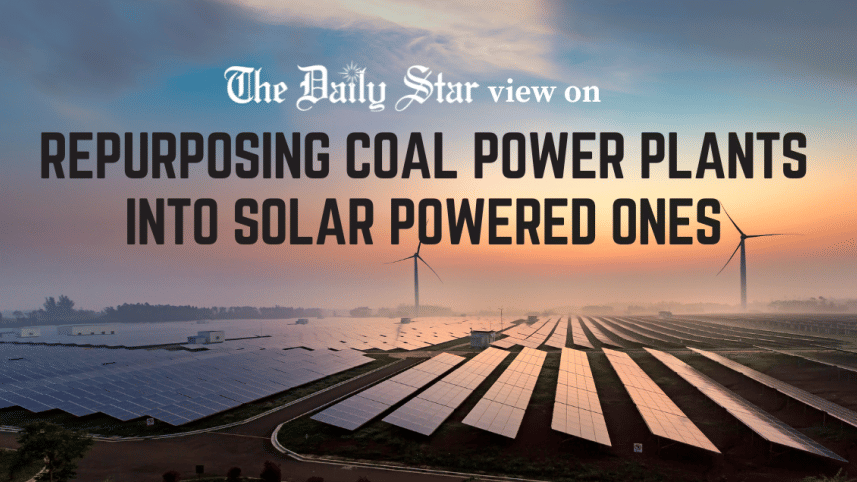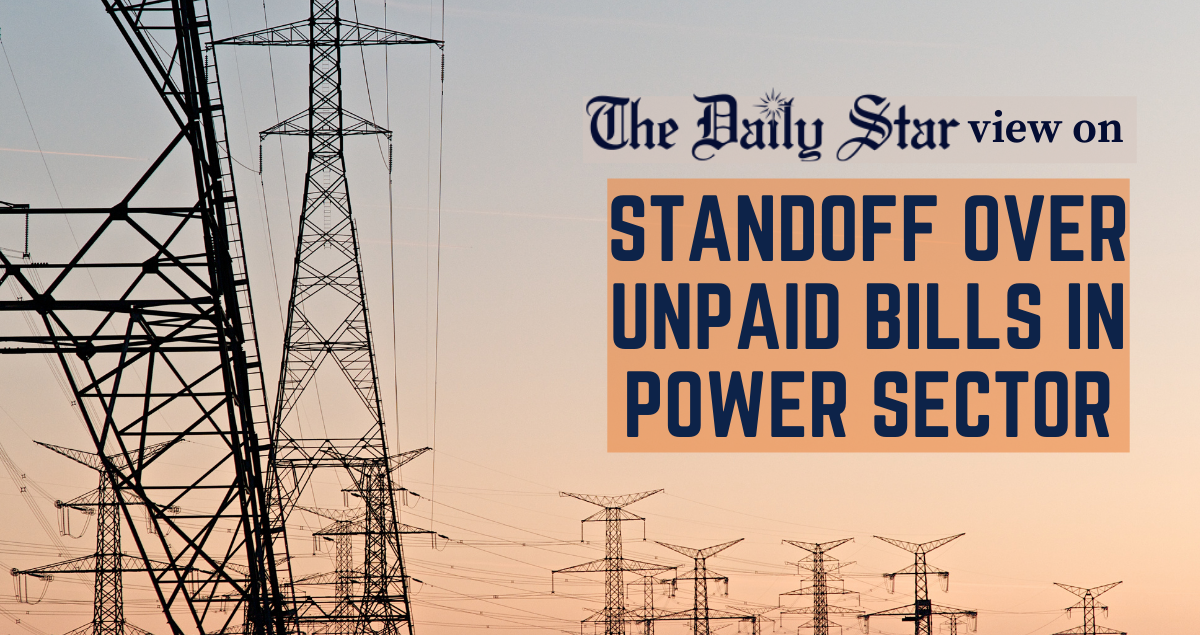Turn dirty power plants into clean ones

If the energy crisis of the past year ought to have taught the Bangladesh government anything, it should have been to move away from expensive and dirty coal and fossil fuel-powered plants to cleaner and cheaper alternatives. As such, we agree with the recommendation of the World Bank to set up solar power plants using the sites of five cancelled coal-fired projects in the country to produce up to 3,788MW of electricity.
The multilateral agency made the recommendation after analysing the potential of the sites and finding that it is both financially and technically feasible to repurpose them. As per the report, shared at a recent seminar, the proposed 2,462MW Moheshkhali solar plant would be 40 times bigger than the largest solar power plant currently operating in Bangladesh. It also suggested that another solar power plant be built in Jamalpur with a capacity of 2,518MW.
The government should urgently consider phasing out non-performing or idle power plants and explore the feasibility of converting them into solar power plants
Of all the renewable alternatives, the greatest potential in Bangladesh lies in solar energy. But the challenge there is finding enough contiguous land in which to deploy solar PV electricity on a large scale, without encroaching into much-needed agricultural land. Under the circumstances, being able to repurpose abandoned coal-powered plants into functioning solar-powered ones would no doubt be a game-changer.
A recent study by the Coastal Livelihood and Environmental Action Network (CLEAN) pointed out that only 39.9 percent of active power plants are running properly, while almost half of the state-owned ones are sitting idle for more than half the time, costing the government – and more importantly, the public – billions of dollars every year. The government should urgently consider phasing out non-performing or idle power plants and explore the feasibility of converting them into solar power plants. According to the Centre for Policy Dialogue (CPD), the government would save $2.5 billion in the first year, $7 billion in the second year and $6.3 billion in the third year if it phased out diesel-fired power plants now.
Unfortunately, our policymakers don't seem to be paying attention. It is of paramount importance that we make well-thought-out investments in renewables now, instead of blindly pursuing unsustainable fossil fuel-based projects that will cost us as well as our environment for decades to come.



 For all latest news, follow The Daily Star's Google News channel.
For all latest news, follow The Daily Star's Google News channel. 

Comments